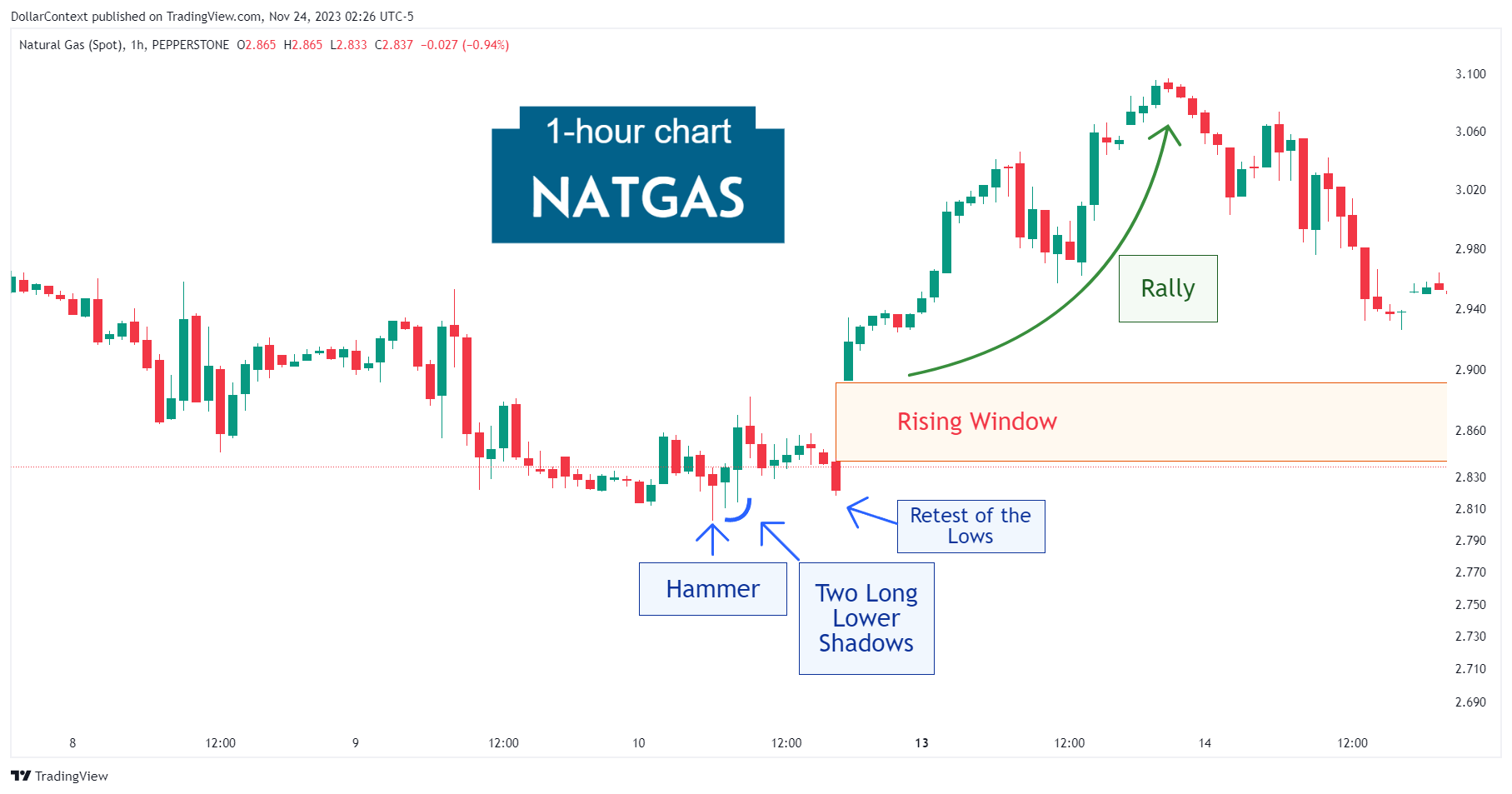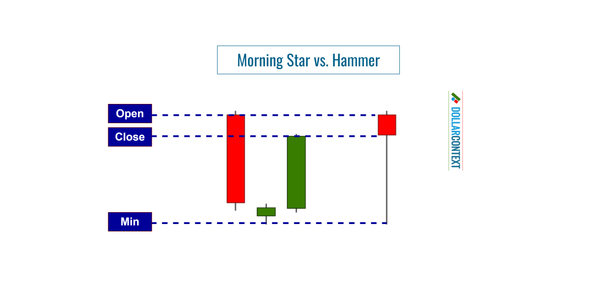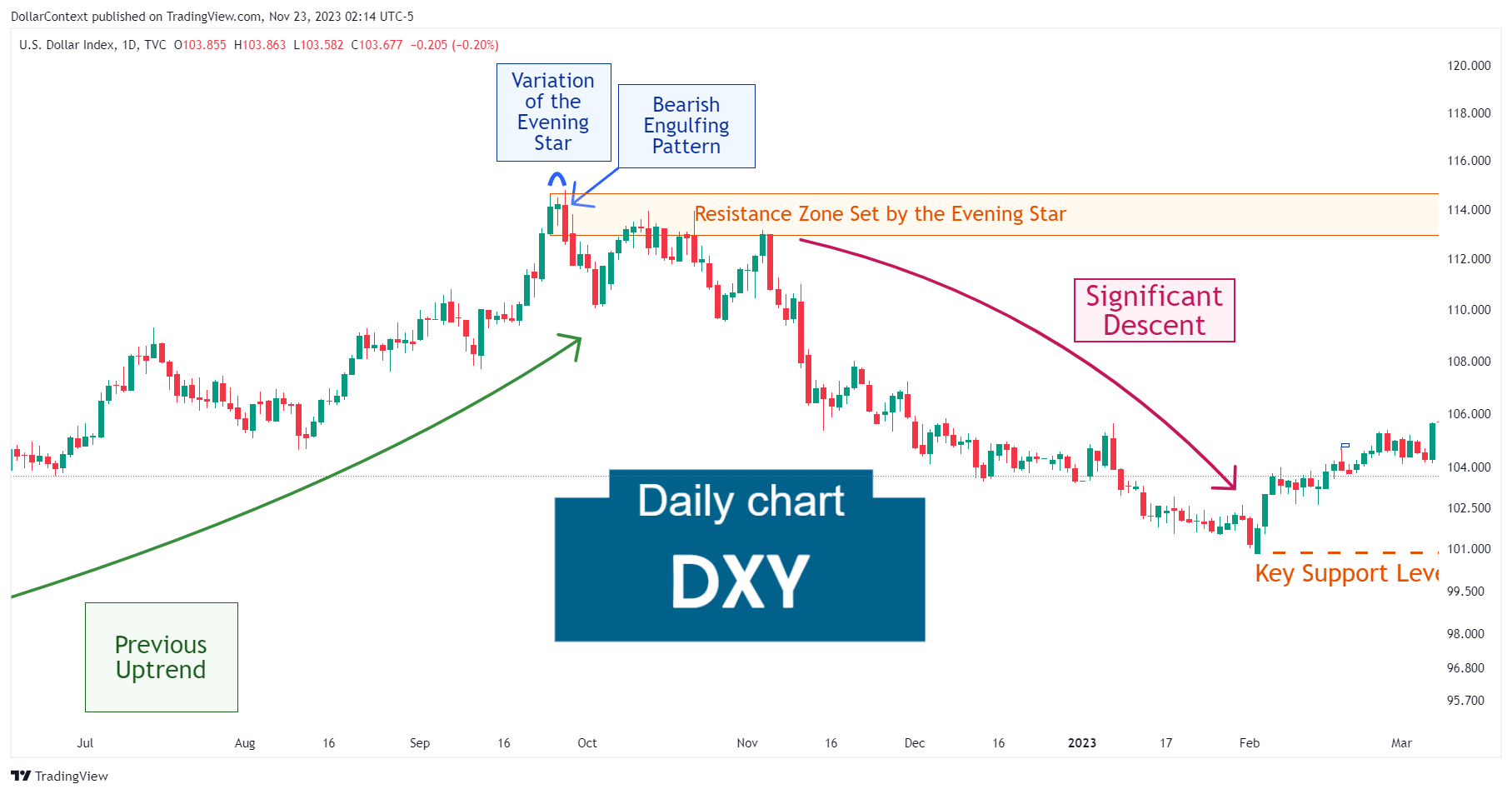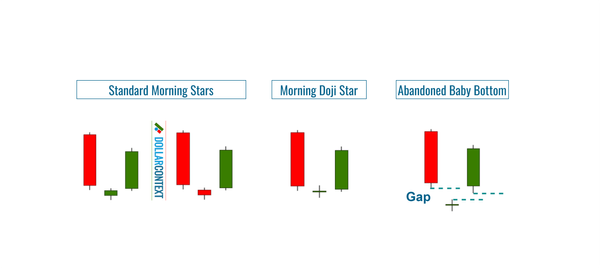S&P 500 Performance After Yield Curve Inversions
The SP500 typically experiences a decline within a range of 6 to 18 months after reaching the low point of the yield curve. The magnitude of these declines range approximately from 20% to 60%.
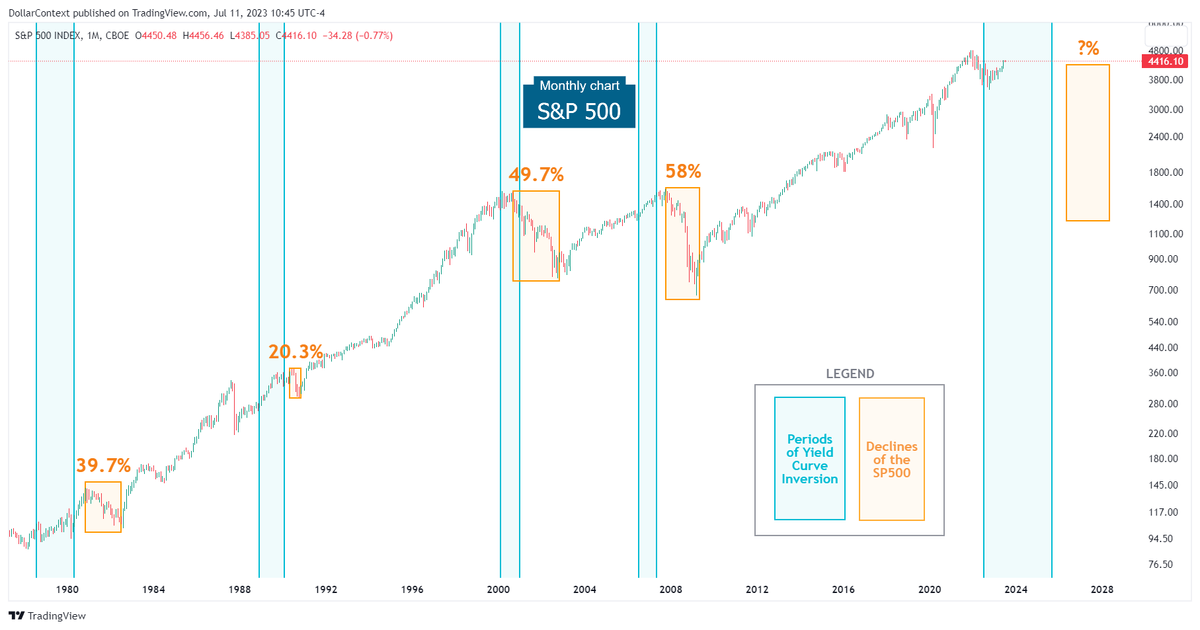
The yield curve has been an accurate indicator to predict recessions. In addition, there has always been a strong correlation between recessions and S&P 500 downtrends. Not surprisingly, there should be a significant connection between yield curve inversions and stock market performance as well.
Today we’re going to discuss different timing strategies to buy or sell the S&P 500 when the bond market, specifically the 10-2 year treasury yield spread, displays an inversion.
Overview
We’ll examine the S&P 500's performance during the past five instances of yield curve inversion by presenting the following two charts for each period:
- S&P 500 chart where the periods of inversion are indicated by blue shaded areas while subsequent market downtrends are represented by orange shaded areas.
- 10-2 Year Treasury Yield Spread
Historically, the stock market has shown strong performance either during the first half or throughout the entire duration of a yield curve inversion.
The S&P 500 typically experiences a decline after a period spanning from 6 to 18 months from the lowest point of the yield curve. The magnitude of these declines ranges approximately from 20% to 60%.
August 1978–July 1982
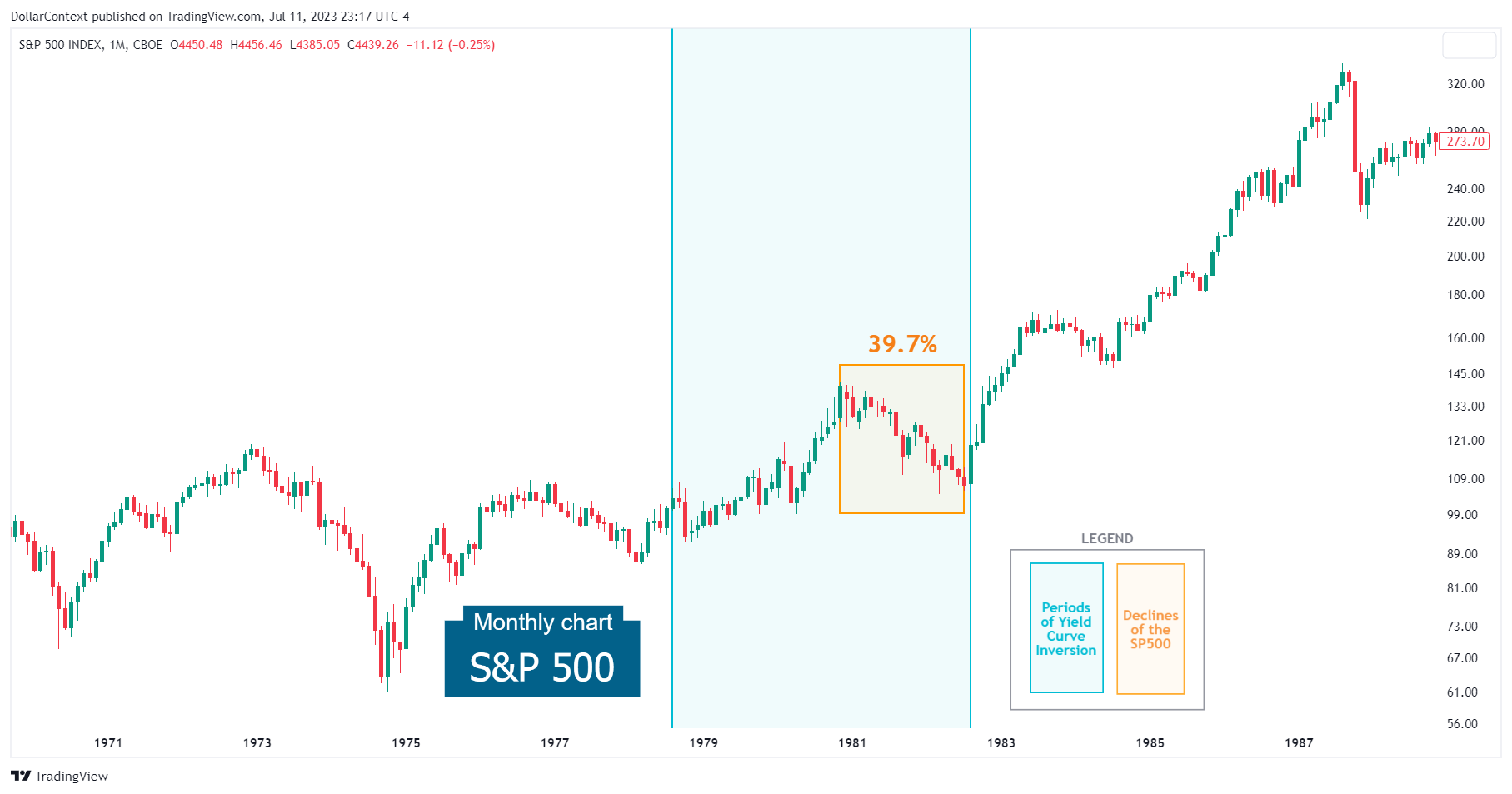
- The inversion begins in August 1978
- Yield curve bottomed in April 1980
- S&P 500 decline begins in November 1980
- Bottom of the inversion to the onset of the S&P 500 downtrend: 7 months
- S&P 500 decline: 39.7%
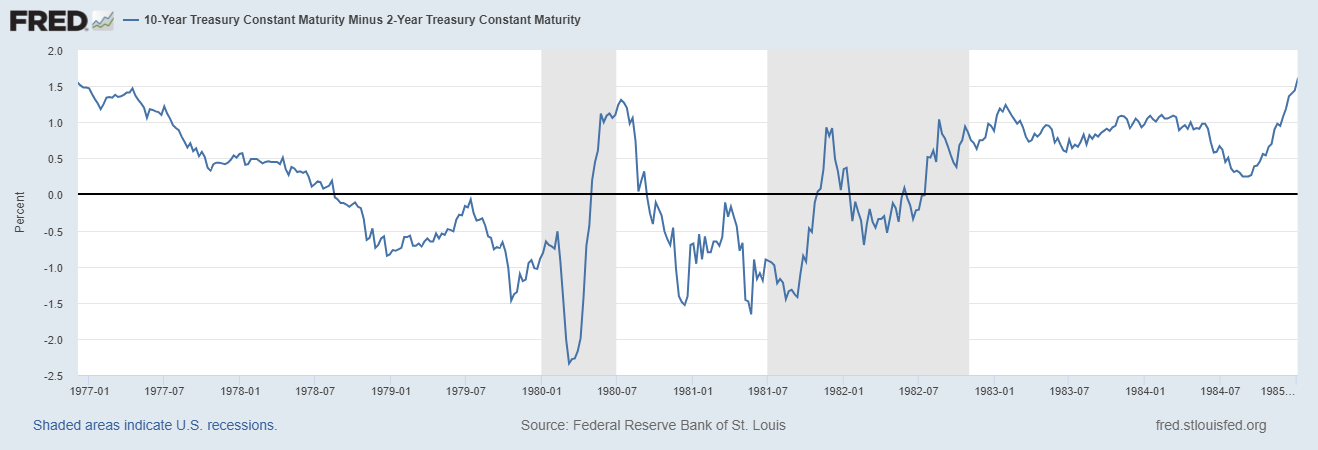
Source: Federal Reserve Bank of St. Louis
December 1988–October 1989
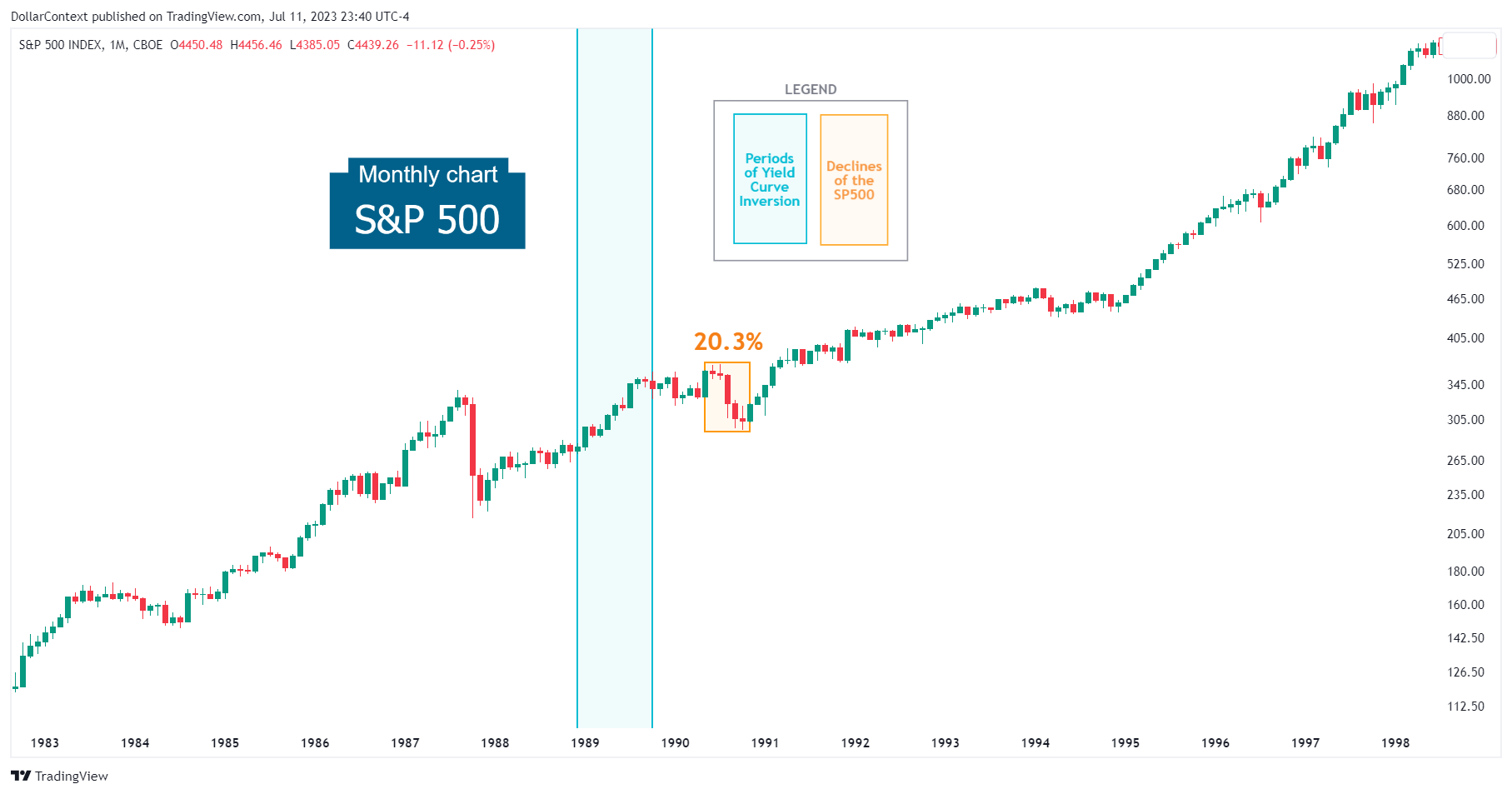
- The inversion begins in December 1988
- Yield curve bottomed in April 1989
- S&P 500 decline begins in May 1990
- Bottom of the inversion to the onset of the S&P 500 downtrend: 14 months
- S&P 500 decline: 20.3%
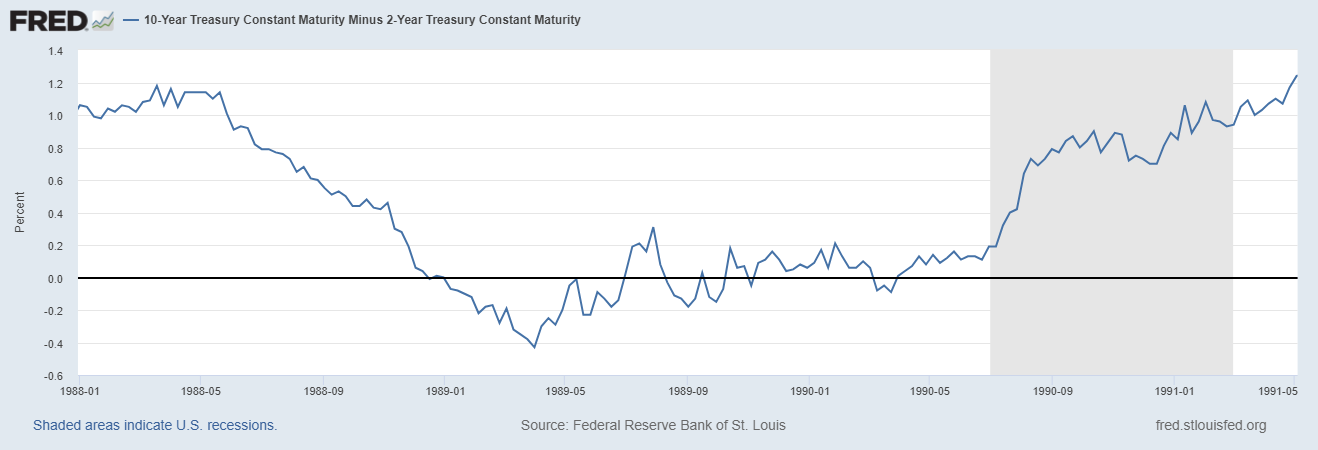
Source: Federal Reserve Bank of St. Louis
February 2000–December 2000
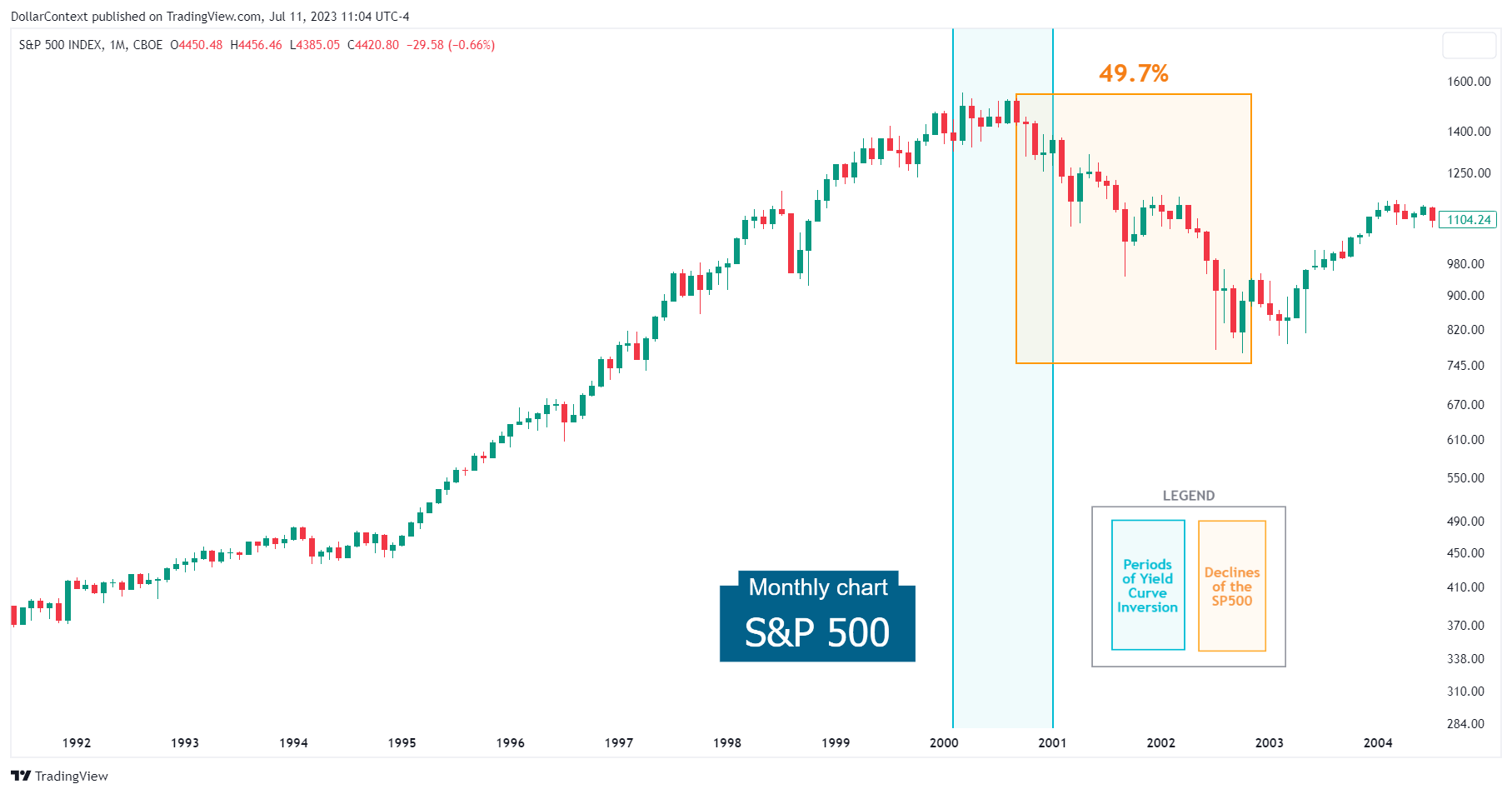
- The inversion begins in February 2000
- Yield curve bottomed in April 2000
- S&P 500 decline begins in September 2000
- Bottom of the inversion to the onset of the S&P 500 downtrend: 6 months
- S&P 500 decline: 49.7%
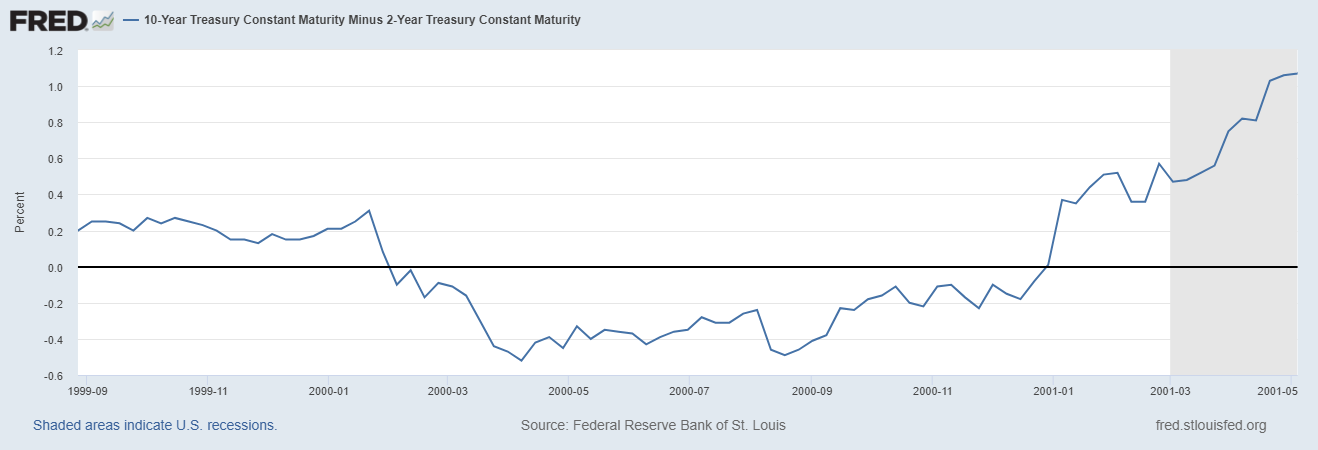
Source: Federal Reserve Bank of St. Louis
February 2006–April 2007
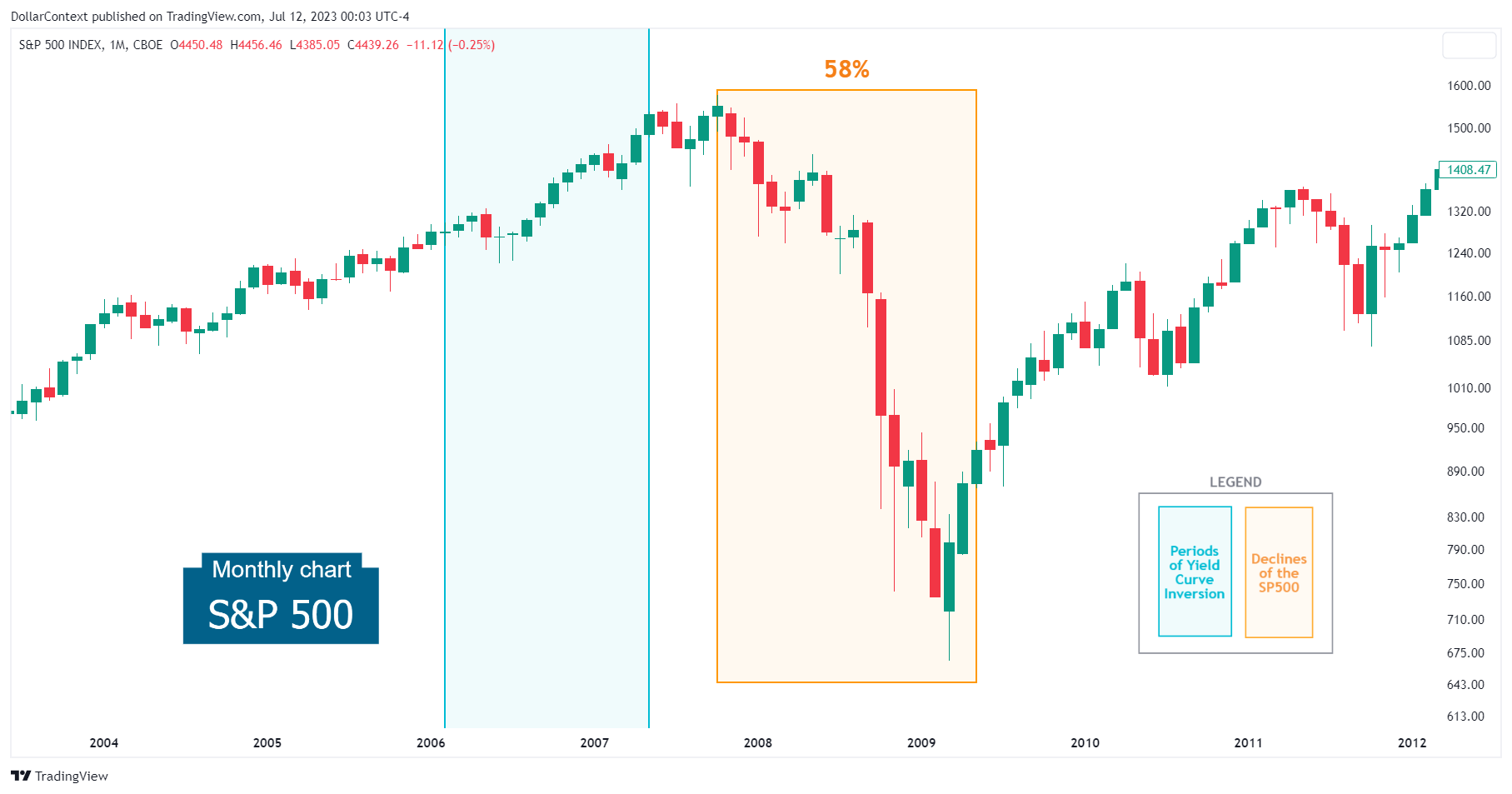
- The inversion begins in February 2006
- Yield curve bottomed in December 2006
- S&P 500 decline begins in October 2007
- Bottom of the inversion to the onset of the S&P 500 downtrend: 11 months
- SS&P 500 decline: 58%
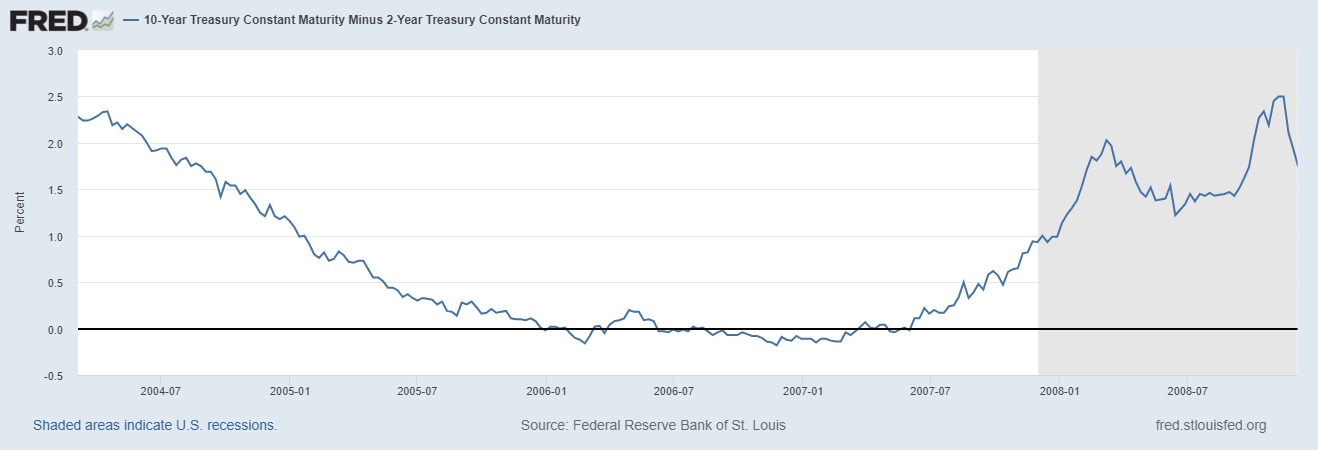
Source: Federal Reserve Bank of St. Louis
Since July 2022
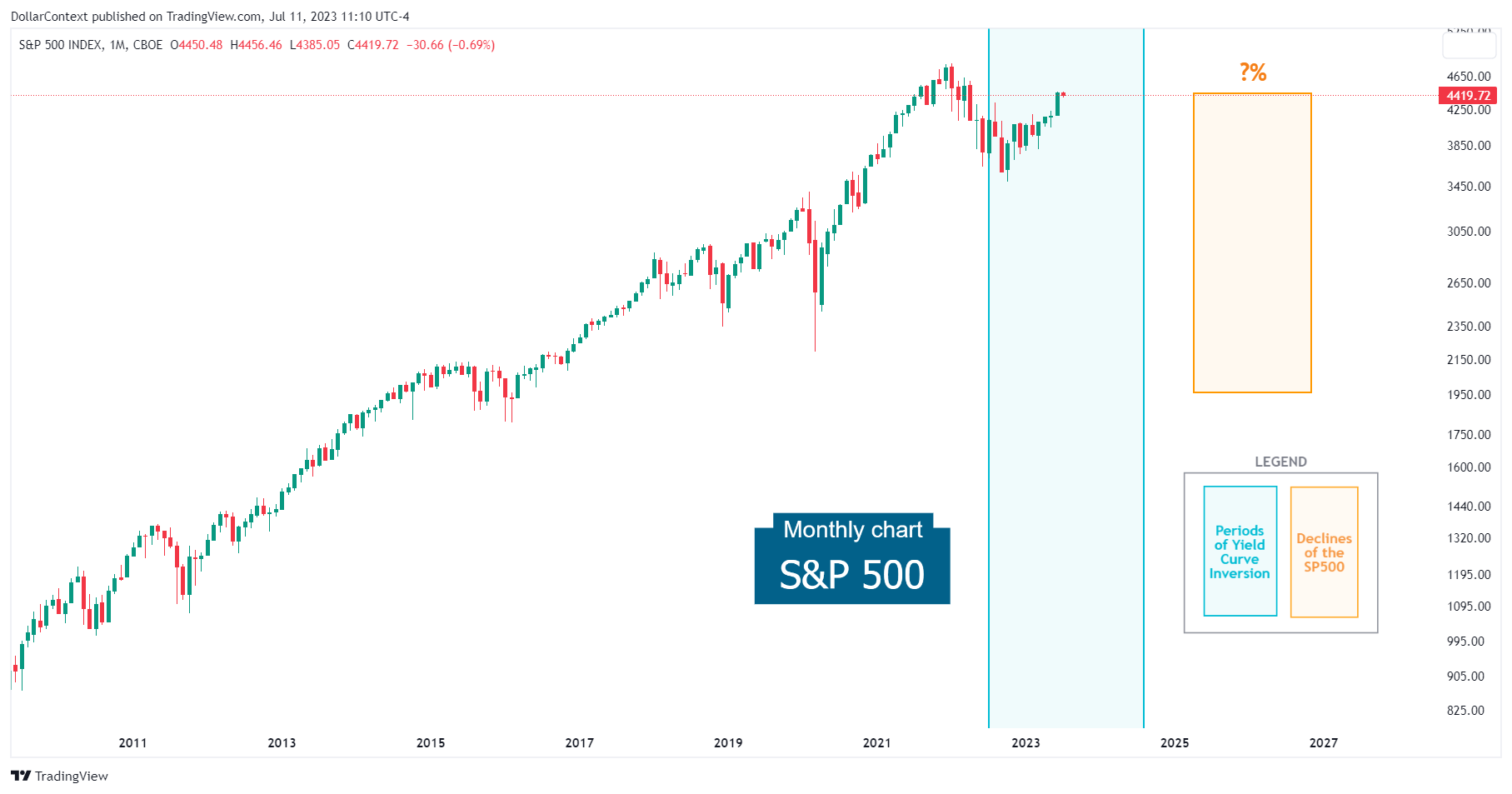
- The inversion begins in July 2022
- Yield curve bottomed in June 2023?
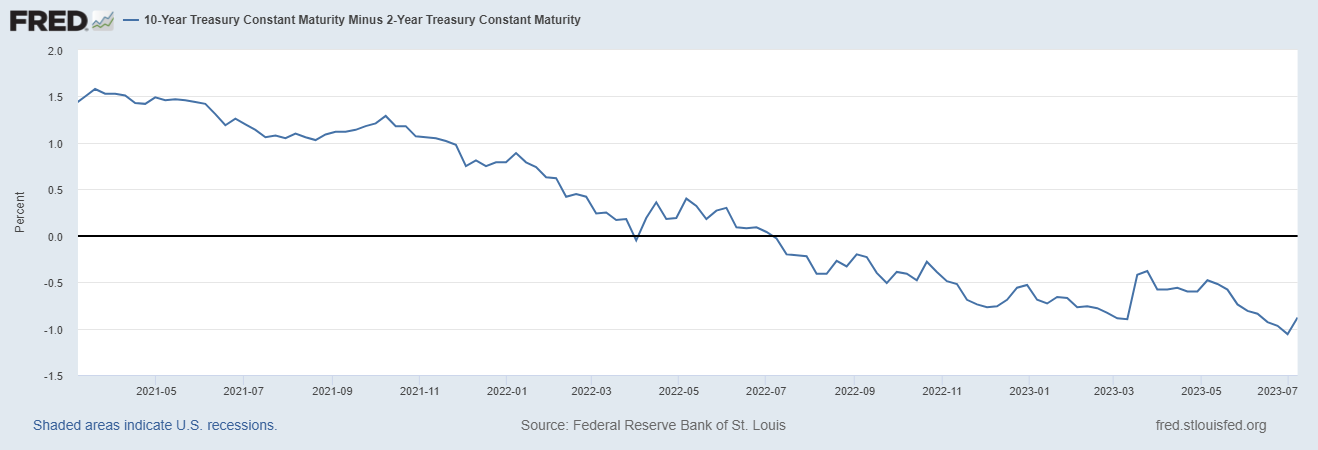
Source: Federal Reserve Bank of St. Louis


